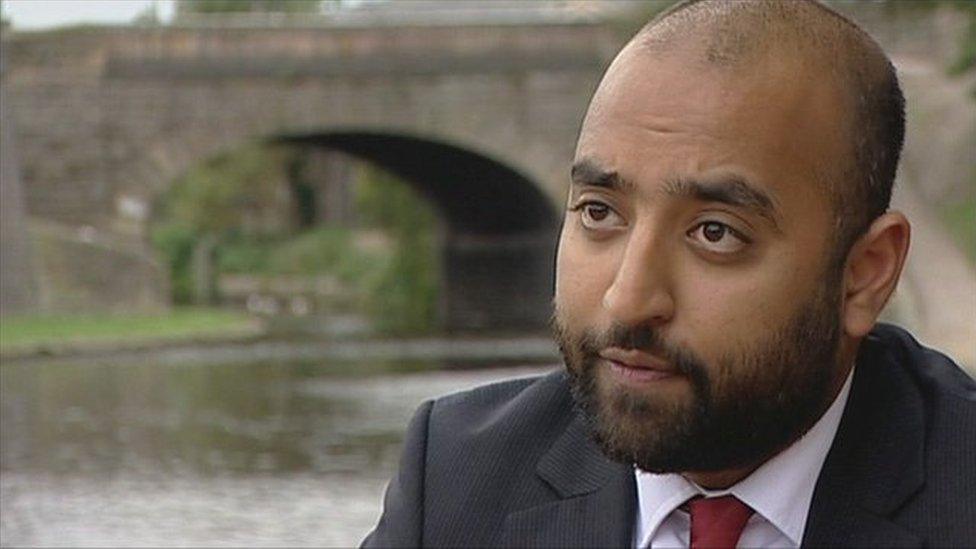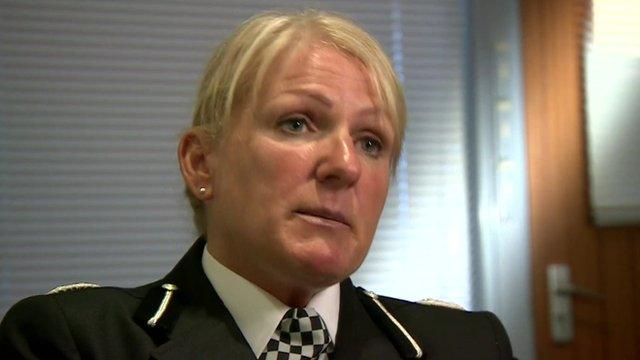Universities' anti-terror plan 'closing down debate'
- Published

Dr Sabir said Prevent was turning university staff into "the eyes and ears of the security state"
A counter-radicalisation plan aimed at preventing people from being drawn into terrorism is closing down debate in higher education, an academic has claimed.
Under the Prevent law, staff are encouraged to identify and tackle risks that could lead to radicalisation.
But criminology lecturer Dr Rizwaan Sabir said it was leading to a "systematic spreading of fear".
One Prevent coordinator said Wales' part was a "model of best practice".
Under the Counter Terrorism and Security Act 2015, universities, like all statutory bodies, now have a legal duty to prevent people from being radicalised.
That includes vetting outside speakers, monitoring sensitive research and internet use and referring anyone deemed as vulnerable to radicalisation to the government programme Channel, external.
But it has proven controversial at universities and colleges, which also have a duty under the 1986 Education Act to secure freedom of speech, and was amended for the higher and further education sectors.

Reyaad Khan who travelled from Cardiff to join a jihadist group in Syria was killed last year in a US drone strike
Dr Sabir, who was paid £20,000 in damages after he was arrested in 2008 after downloading "the Al Qaeda Training Manual" for a PhD study on counter terrorism, said Prevent was turning university staff into "the eyes and ears of the security state".
He told BBC Radio Wales' Eye on Wales programme: "Rather than leading to engagement, this policy, Prevent, is leading to disengagement, systematic spreading of fear and the closing down of expression and debate.
"By requiring university staff to detect who is a 'future terrorist' and to refer them to the relevant authorities, that might not be secret intelligence associated in people's minds with James Bond but it still counts as intelligence."
But Dr Paul Fitzpatrick, chaplain and Prevent officer at Cardiff Metropolitan University, said Prevent in Wales was "about three years ahead of England".
"I'm not a police officer. I don't work for the security services and I don't spy. Prevent means protecting our students," he said.
"I see it very much the same as child abuse. If you have a case of child abuse, of course you'd report it. I don't see grooming as any different."
Barrie Phillips, one of 10 higher education Prevent coordinators employed by the Home Office, said: "Is Wales regarded as having best practice in this area? I think the answer would have to be yes.
"What we have within Wales is a safeguarding bubble which encompasses universities, colleges, schools and communities."
Eye on Wales, BBC Radio Wales, Sunday 13 March at 12:30 GMT
- Published24 November 2014

- Published26 August 2014

- Published12 January 2016
